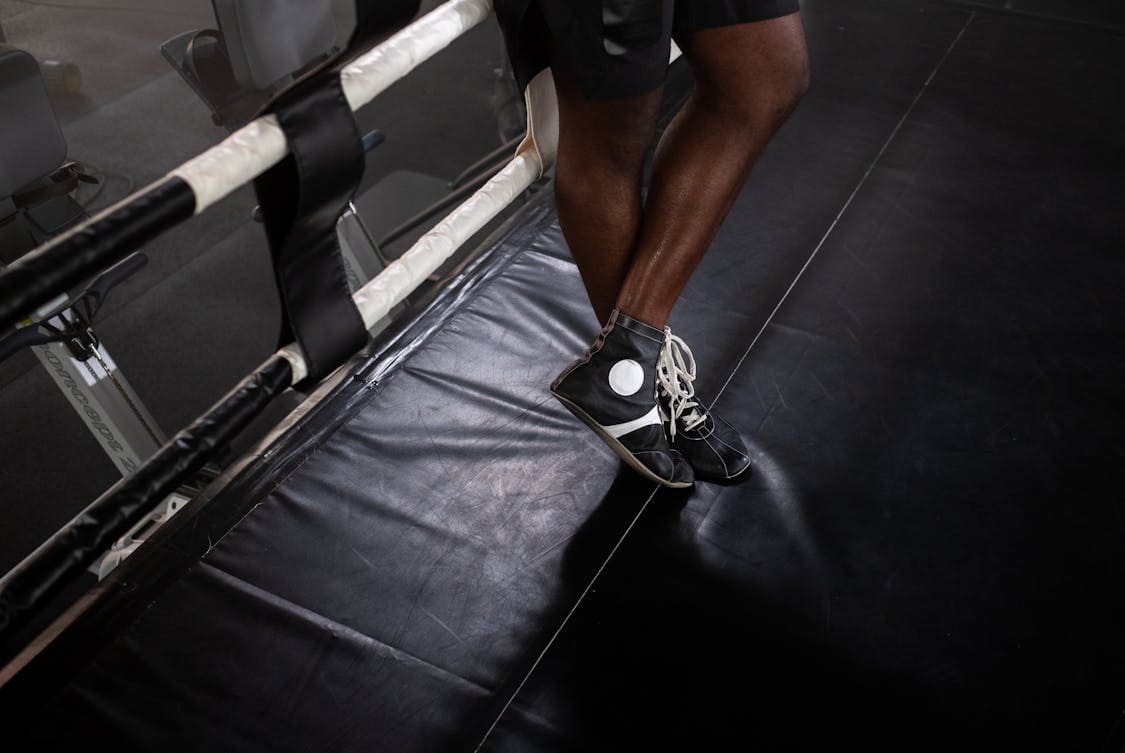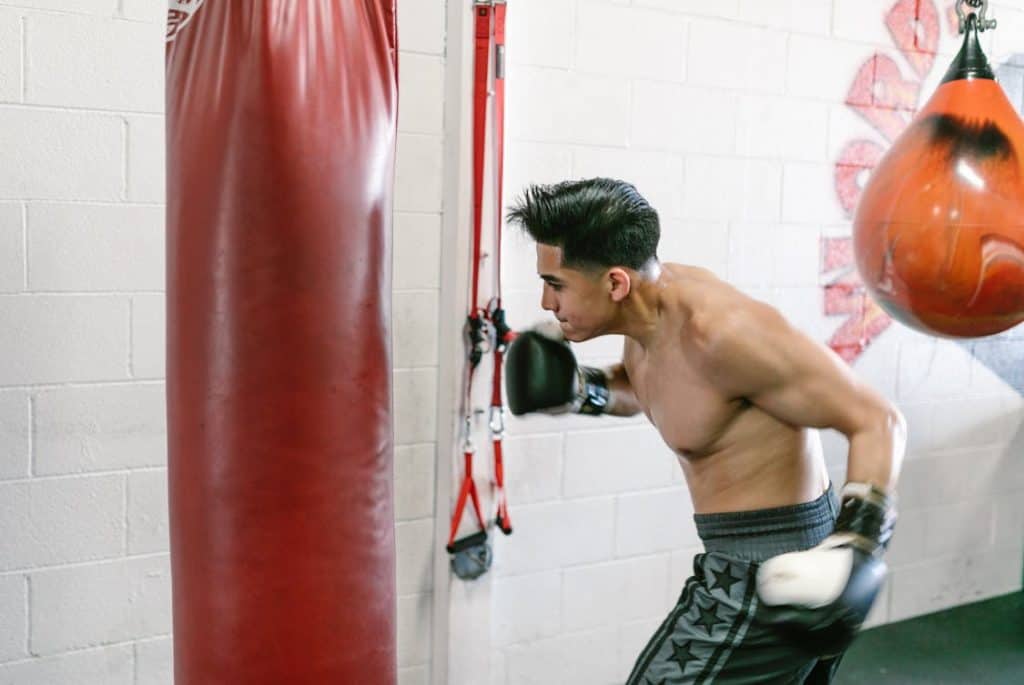Start your boxing journey with the right gear to help protect you and your training partner from injury. From gloves and headgear to hand wraps and shoes, there are a variety of essential pieces to get you started.
Gloves are the first and most important piece of equipment for any new boxer. They vary in size and weight, with lighter gloves geared towards speed and precision work and heavier gloves designed for sparring and heavy bag workouts.
Gloves
As any aspiring boxer will know, gloves are an essential piece of training equipment that cushion and protect your hands from punches. Choosing the right boxing gloves can make or break your training sessions, and there are many factors to consider in selecting the best pair for you.
Sizing is key for comfort, protection, and performance in boxing. The proper fit will feel like an extension of your hands, allowing for optimal control and power transfer. When sizing, wrap a tape measure around the widest part of your hand knuckles (excluding the thumb), then refer to the size chart provided by the manufacturer for guidance. Heavier individuals should opt for gloves with thicker padding, while lighter individuals can train in smaller versions.
Modern boxing gloves are available with advanced features to improve performance and safety. For example, some are designed with pre-curved constructions that match the natural resting position of the hand, reducing strain during long training sessions. Other innovations include finger locks to prevent chafing, gel inserts for impact absorption, and thumb locks to ensure a proper fist alignment. Some manufacturers also treat their glove materials with antimicrobial solutions to minimize odor buildup.
Other protective gear essential for sparring and bag work includes headgear, mouthguards, and hand wraps. Headgear is especially critical for sparring, as it mitigates the effects of unexpected hits to the head, reducing the risk of injuries. In addition to offering a secure fit and visibility, the best headgear should be comfortable and offer adjustable straps for customizing the fit. For hand wraps, look for flexible options that can be easily adjusted and conform to your wrists, such as the Hayabusa Perfect Stretch Hand Wraps or Quick Hand Wraps.
Headgear
Choosing the right pair of gloves, headgear and mouthguard is crucial to your safety in sparring and helping you improve your skills and fitness. Poorly fitting equipment can throw off your form, and even worse, it can lead to injuries. Choose the right size and weight for your training, taking into account your level of experience and your training goals.
Gloves should fit snugly without being too tight. Look for adjustable straps to achieve a custom fit and soft inner linings to prevent skin irritation. They should also offer good palm ventilation to reduce sweating and blisters.
There are a variety of different headgear options available for boxing, including open and closed face designs, with and without cheek protection. Ideally, the padding should be lightweight and evenly distributed, balancing safety with comfort. Look for headgear that offers a wide field of vision and doesn’t impede your breathing or restrict your movements.
When selecting boxing gloves, consider your level of experience and your training goals. Lighter gloves (8-12 oz) are typically used for sparring and competitive bouts and allow for faster hand movement, while heavier gloves (18-20 oz) are better suited to training and building endurance.
It’s important to check your boxing gear regularly for signs of wear and tear. If you notice that your gloves are getting worn or losing their shape, it’s time to replace them. Also make sure to clean your equipment regularly and store it in a cool, dry place. This will extend their life and help to maintain their performance. When in doubt, consult your trainers for recommendations and advice on the best gear for your specific needs. The right equipment will help you train safely and efficiently, increasing your speed, power and balance.
Mouthguard
Whether you’re a beginner or a seasoned fighter, having the right boxing gear is essential to your training. Here are a few tried-and-true essentials every boxer needs:
Gloves
A good pair of gloves is the most important piece of boxing equipment you can buy, especially for beginners. Boxing gloves protect your hands and cushion the impact of punches on your sparring partner or heavy bag. They also provide a great grip and help you develop power in your strikes.
Boxing gloves come in a range of sizes and weights. Beginners should stick with lighter boxing gloves (12 oz or less), which are more comfortable and can double as sparring gloves. Boxers that train regularly may also want to invest in heavier training gloves that are 16 oz or more for added protection.
When selecting a pair of boxing gloves, look for well-padded gloves that offer wrist protection and are made from high-quality leather or durable microfiber leather. Also consider the fit of the gloves. Velcro gloves are convenient for daily use but lace-up gloves provide a more secure fit.
Headgear
Boxing headgear offers protection for the forehead, cheeks, and chin during sparring sessions. It is available in various styles including open face and full-face options. Boxers should choose a helmet with adequate padding to minimize injuries while still providing visibility and comfort.
Shoes

Boxing is a sport that requires both strength and agility, which means you need the right gear to help you perform your best. From shoes to hand wraps, the proper equipment can improve your footwork and punching power while protecting you from injuries. Here’s a guide to the gear you need to get started in this popular sport.
A good pair of boxing shoes is essential for both comfort and performance. Most boxers wear shoes that provide ankle support and have a lightweight design. The best boxing shoes are also grippy enough to prevent slips on the mat, but they should still allow for pivots when throwing power punches or performing typical fighting footwork maneuvers. Boxing trainers are available in a range of styles and heights, including low-, mid-, and high-top options.
If you’re unsure which shoes to buy, try them out in person before making your final decision. Most boxing stores have a dedicated area where you can test out different brands and models. Also, make sure you’re buying the right shoe size for your feet. If they’re too loose, you could lose focus in the ring and risk injury. Conversely, if your shoes are too tight, they might feel uncomfortable and limit your movement.
Once you’ve secured the perfect pair of boxing shoes, you’ll need the right hand wraps to keep your hands secure and prevent injuries. Whether you prefer the stretchy fit of Mexican-style hand wraps or the convenience of quick wraps, the right wraps will ensure you can practice boxing without worrying about wrist injuries. The same goes for the mouthguard, which protects your teeth and jaw from accidental blows during sparring or intense training sessions.

